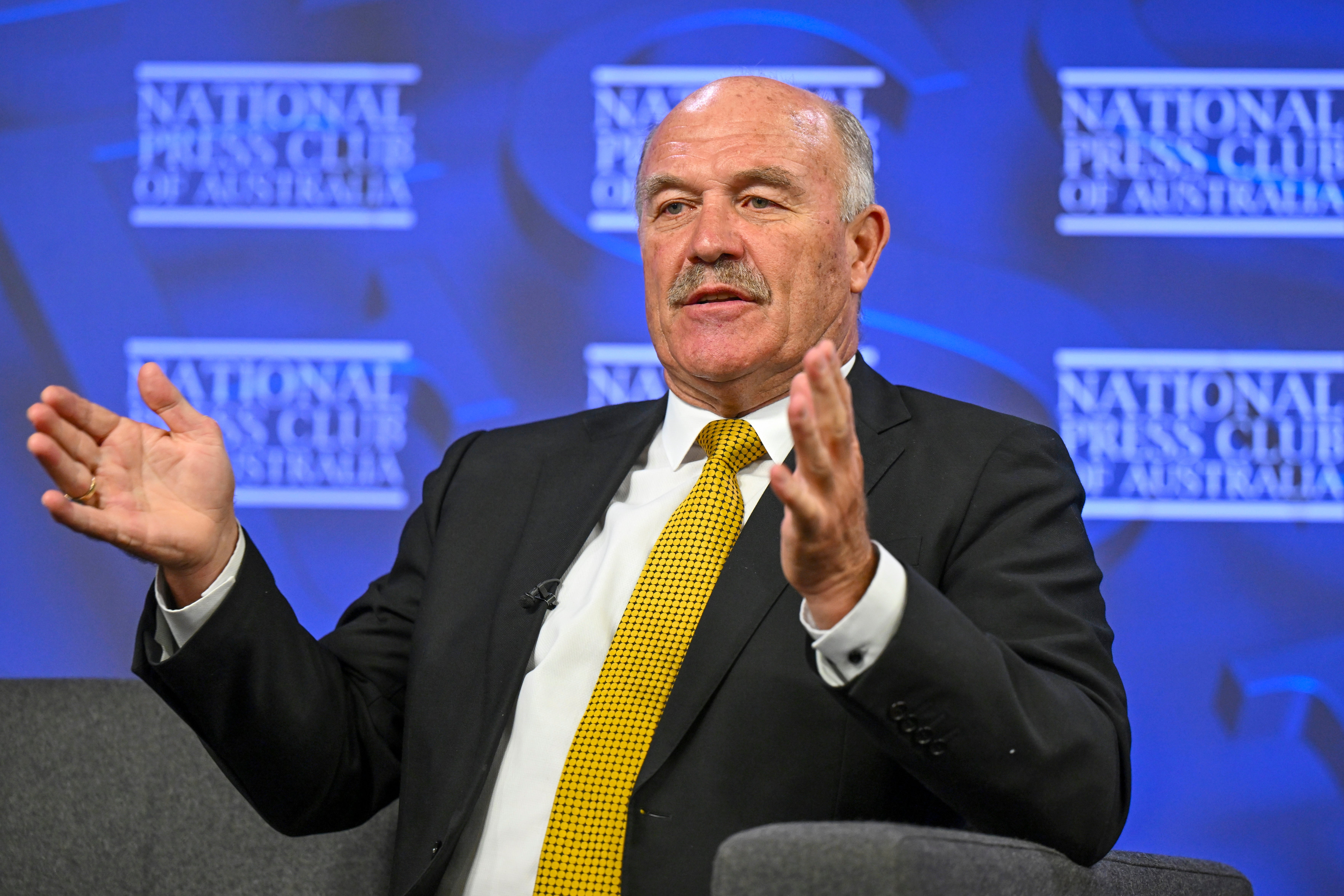Legendary rugby league star Wally Lewis appeals for concussion and CTE awareness support
A legendary rugby player has cited the fear and anxiety that has invaded his life among the reasons for urging the Australian government to fund support services and education about chronic traumatic encephalopathy (CTE)

A legendary rugby player has cited the fear and anxiety that has come into his life among the reasons for urging the Australian government to fund support services and education about chronic traumatic encephalopathy (CTE).
Wally Lewis, dubbed “The King” when he played rugby league for Queensland state and Australia in the 1980s, made an appeal on behalf of the Concussion and CTE Coalition for millions of dollars in funding during a National Press Club address Tuesday.
The 64-year-old Lewis said he’s living with probable CTE, which he described as a type of dementia associated with repeated concussive and sub-concussive blows to the head.
Lewis, who worked for decades as a television sports anchor after retiring as a player in the early 1990s, relayed his own experience to get his message across.
“The fear is real. I don’t want anyone to have to live with the fear and anxiety that I live with every day, worried about what I’ve forgotten ... the fear of what my future will look like,” Lewis said. “And living with the constant fear and anxiety that I’ll let people down – the people who all my life have been able to rely on me and looked to me for my strength and leadership.”
Lewis led Australia’s Kangaroos in 24 international matches, was among the original players to popularize the annual State-of-Origin series, and was included in Australia’s Rugby League Team of the Century in 2008.
The National Rugby League has honored him as a so-called “Immortal” of the game.
Yet his memories of it aren’t clear. He started playing rugby league as a young boy and also played rugby union at an elite level before embarking on a professional career in rugby league.
“It’s a journey marked by the twin shadows of fear and embarrassment, a journey through the fog of dementia and the erosion of my memory,” he said. “I once had the confidence in myself to succeed, lead a team to victory, captain my country, remember the strengths and weaknesses of opposition teams, organize myself each and every day and feel well and truly in control of my life.
“Now, much of that confidence has been taken away from me by the effects of probable CTE dementia.”
Lewis said better community awareness on concussion was needed and prevention programs, including a sharper focus on tackling techniques from young players through to professionals.
Awareness of CTE and concussion has grown since players in contact football sports, including the National Football League in the United States and rugby union in Britain, launched concussion lawsuits.
The Rugby World Cup took place last year against the backdrop of a concussion lawsuit in Britain that had similarities to one settled by the NFL in 2013 at a likely cost of more than $1 billion.
CTE, a degenerative brain disease known to cause violent moods, depression, dementia and other cognitive difficulties, can only be diagnosed posthumously. It has been linked to repeated hits to the head endured by football, rugby and hockey players, boxers and members of the military.
“As Wally Lewis I have influence – I have a platform – and I intend to use it at every opportunity to bring about change for all Australians like me who are impacted by CTE,” Lewis said, “and to do whatever I can to protect the brains of Australian children from CTE.”
___
AP rugby: https://apnews.com/hub/rugby
Bookmark popover
Removed from bookmarks